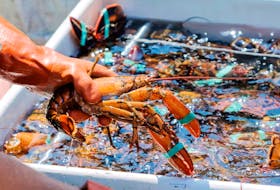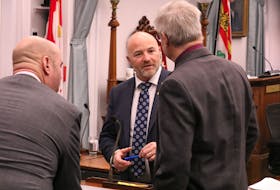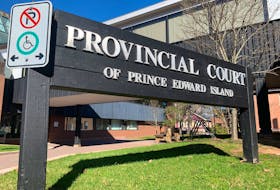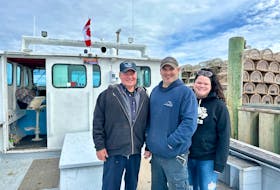It won’t be enough for the provincial government to make sure land is available for future farmers.
They must also ensure that land has quality soil.
The declining soil organic matter (SOM) in P.E.I.’s agricultural land has shown a major decline in the past two decades, an issue many farmers are looking at the province to address.
“It’s a situation they can’t ignore,” said Byron Petrie, a young organic farmer living in Morell. “It has been drastically falling for a long time now. It only exacerbates the situation we’re in with climate change and more extreme weather.”
From 1998 to 2015, P.E.I.’s acreage with two to three per cent soil organic matter increased from 10 per cent to 73 per cent. During the same time, acreage with 3.1 to 4 per cent SOM declined from 70.6 to 24 per cent.
Lesser quality soil does not hold moisture as well. Pictures taken in P.E.I. during the past few years have shown incidents of high winds kicking up P.E.I.’s dry top soil and blowing it around like a dust storm.
One farmer, who wished not to be named, said those type of events would likely not happen, at least as often, if P.E.I.’s SOM was not so depleted.
In simpler terms, more cow manure would have helped.
“It’s a great means to increase your soil organic matter and just the general health of the soil so it doesn’t end up blowing away,” said Petrie, who agreed with the assessment.
Petrie said he would like to see parties offer more funding for hedgerows, as well as programs that would give farmers incentives to increase the SOM.
Several farmers who The Guardian spoke to following the debate also said more resources must be invested into the Alternative Land Use Services (ALUS) program, which offers landowners financial assistance to implement better management practices for environmentally sensitive land.
Major pledges made by political parties relating to agriculture
Greens
- Create a land bank to make land affordable for new farmers. Review the Land Protections Act to ensure purchases are complying with the word and spirit of the act
- Use LIDAR mapping and drones to make custom buffer zone width recommendations
- Conduct a review of the Agricultural Crop Rotation Act to ensure maintenance and increase of soil organic matter
- Replace department of rural and regional development with a rural secretariat
- Expand reforestation and forestry management programs
- Implement organic certification regulations
- Maintain a moratorium on high-capacity wells for agricultural purposes
- Increase funding for community programs and outreach activities to expand local markets.
Liberals
- Expand worker recruitment and retention initiatives to increase labour access
- Establish a “Food Island” export program to help expand markets
- Revise and expand crop insurance programs so growers have support to mitigate risks of bad growing seasons
- Incentivize, through a $1 million fund in crop insurance, farmers who implement a variety of practices to improve soil health
- Invest $1 million in new reforestation
- Support the development of the next generation of farmers with programs to facilitate the passage of land and assets from one generation to the next
- Reduce red-tape and align regional regulations so farmers have an even playing field in the region
NDP
- Remove “loopholes” in the Lands Protection Act and restrict acquisition of agricultural land by non-residents
- Publish an annual scorecard on P.E.I. soil quality
- Reform the crop insurance program to mitigate against natural disaster
- Invest $100 million over four years to support the transition to sustainable agriculture and growing markets
- Source local food for public institutions such as schools and hospitals.
- Ban new high-capacity wells.
- Strengthen regulations around buffer zones and crop rotation.
- Fund an expansion of farmers’ markets.
- Set a 15-year schedule to phase out industrial herbicides, pesticides and fungicides.
- Establish a joint marketing program for organic products – and for promoting locally harvested food.
PCs
- Continue a moratorium on deep-water wells and further study the issue to develop a permanent policy
- Establish a farmland bank to purchase land from retiring farmers and lease it to other farmers
- Separate the departments for agriculture and fisheries
- Implement a “P.E.I. Food First” strategy to increase the use of locally-grown food in public institutions
- Expand the marked diesel program to farm-plated vehicles and equipment
- “Respect and restore” the spirit and intent of the Lands Protection Act
- Create a formal partnership between UPEI’s school of sustainable design engineering and the department of agriculture and fisheries to give Island farmers and fishers access to leading international technology
- Plant one million trees annually through reforestation plan









